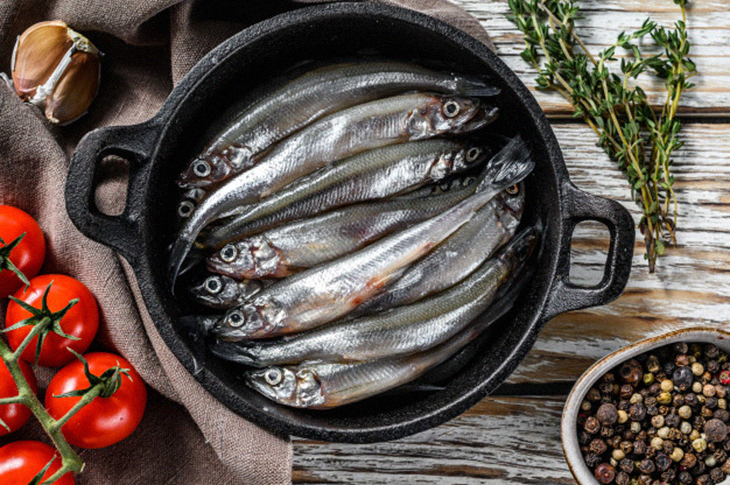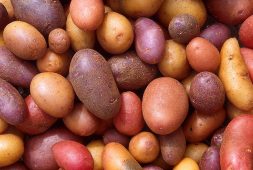They May Be Small But They Sure Are Mighty. This Is Why You Should Eat Anchovies As Often As You Can

Whether you like anchovies, sardines, or other small fish, it’s important to know that they are actually considered to be superfoods. In fact, one doctor explains why they are incredibly beneficial when it comes to nutrition, especially for your little ones.
Dr. Shakuntala Haraksingh Thilsted happens to be the 2021 World Food Prize winner, which is an award that’s comparable to the Nobel Peace Prize when it comes to food and agriculture. She won due to her work of integrating small fish into the diets of those living in developing countries. For the most part, she focused on this precisely because a number of small fish are considered to be amazingly dense nutrition wise. Moreover, small fish are also known to play a very vital role in brain development in children during the first 1,000 days of their young lives. And the same goes for pregnant and nursing mothers too.
Small fish like anchovies, sardines, and a number of others are packed with the healthy unsaturated fats omega 3 and 6, which are also referred to as EPA and DHA respectively. Both are also essential for brain health. And an added plus is the fact that sardines eat only plankton as well, which means that they have low levels of mercury, unlike a number of other fish in the sea.
Furthermore, there is evidence that small fish can counter aging, as well as reduce inflammation in a number of organs. Small fish are also known for their vitamin B12 component, which is a nutrient found more often in meat and other forms of seafood yet not found in most other food groups that is crucial to brain development in young children.
Children in developing nations often have a B12 deficiency, which is something Dr. Thilsted aimed to address in her work. By giving children better access to small fish, this helps lessen common nutrient deficiencies. But she also says that because most people prefer to eat bigger fish such as salmon, tuna and carp, it has been a challenge.
She explains in an interview with NPR why she’s such a fan of small fish. She shared, “In many part of Asia and Africa, common small fish species have a big impact on human health and the cognitive development of children. But we must also think beyond just fish to other aquatic foods such as seaweeds, which are also very nutritious.”
She continues, “Small, native fish are more accessible to the poor. They do not fetch a high price like carp species at market, which means they can be grown in the backyard pond, harvested by women and cooked for daily meals.”
Although her work began in Bangladesh, it has spread to other developing areas such as Cambodia, Malawi, Zambia, Sierra Leone, India, Nepal and Myanmar. In order to address the above-mentioned issues and give these populations more access to these smaller fish, she is using the backyard “homestead pond” method, which is a popular cultural practice in Bangladesh.
During the interview, Dr. Thilsted also shared the method in which Bangladesh nationals normally get access to fish. Considering the country is “low-lying,” it means that they tend to build their homes on raised land, digging up dirt to create higher ground where they then build their homes on top. The area where they get the dirt then becomes a pond, and more often than not, people fill them up with big fish to feed their families.
Dr. Thilsted told NPR that within Bangladesh alone, there are around four million homestead ponds. But it isn’t only Bangladesh that does this, but also Malawi, Zambia and India. Since small fish tend to grow faster, they can also produce more food weight than the bigger fish people tend to grow in the ponds. And since small fish bones have an incredible amount of nutritional value, people can through the smaller fish rather than having to debone or remove the bones before eating them.
In order to make it easier for families to get essential nutrients to children and the other family members, Dr. Thilsted created programs to spread awareness of the ‘dietary uses of small fish in the kitchen.’ One way is to dry the fish, roast it then pulverize it until it’s crushed enough to be sprinkled over rice or porridge, making it a sort of supercharged supplement. This method also allows you to keep the fish for months without it getting rotten.
WorldFish Director, Gareth Johnstone, who has been in charge for the last 10 years, explained “Dr. Thilsted’s work on nutrition, fish and aquatic foods challenges us to think very critically about the scope of agricultural research and the urgent call to action to transform global food systems towards healthy and sustainable diets for all.”



